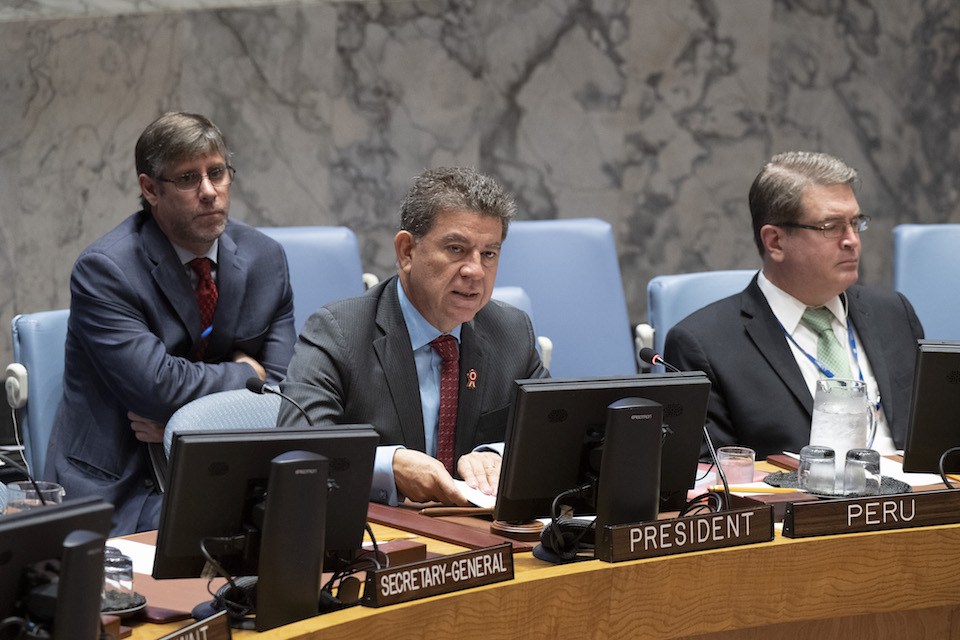Recent violence and prospects for a truce in Libya
Statement by Ambassador Karen Pierce, UK Permanent Representative to the UN, at the Security Council briefing on the situation in Libya.

Thank you very much, Mr President. Thank you once again to the Special Representative for your briefing and for UNSMIL’s continued determination to help de-escalate the situation in Libya and facilitate a return to the UN-led process.
Mr President, we heard this morning a grave and alarming analysis of a descent into violent chaos and the risk of disintegration of a country, as the SRSG alluded to. And I think we all recognise that the coming weeks will be vital for Libya and for our part, we stand steadfast in support of UN leadership and Mr Salamé’s efforts to bring about a transition from violence to a renewed political process.
I’m going to keep my remarks short, Mr President, because we have consultations after this. So I just wanted to draw attention to a few areas before getting on to what the Special Representative said about a truce.
We call again on all UN Member States to respect fully their obligations to contribute to Libya’s peace and stability, prevent destabilising arms shipments and to safeguard Libya’s oil resources, all in accordance with relevant UNSCRs. Now it’s obvious, and as was said, the parties continue to receive external support and arms shipments, which further fuels the conflict. So once more, the United Kingdom calls on all Member States to respect international law and calls on the Security Council to take reports of violations very seriously. And thank you to the German Ambassador for his report as Chair of the Sanctions Committee.
The humanitarian cost continues to be of enormous concern. I won’t repeat what the SRSG said, but I think we really do need to find a way to protect migrants and refugees travelling along the central Mediterranean route And we need to find a way to protect those in detention centers within Libya itself. And we’ve discussed before in this Council the 3 July Tajoura Detention Centre attack.
I want to repeat what the SRSG said about the parties dissociating themselves from violent, extremist elements and what he said about hatred and invective fuelling violence.
Turning to his three part proposal for an Eid al-Adha truce and accompanied by confidence-building measures for a high-level meeting of concerned countries to be followed by an internal Libya meeting, these are obviously very important elements, Mr President, coming at a very critical time. I think the Council will want to discuss them in some detail and work out how best the Council can enhance the UN’s efforts.
So I will leave it there, Mr President, but look forward to picking up these important points in consultations.
Thank you.